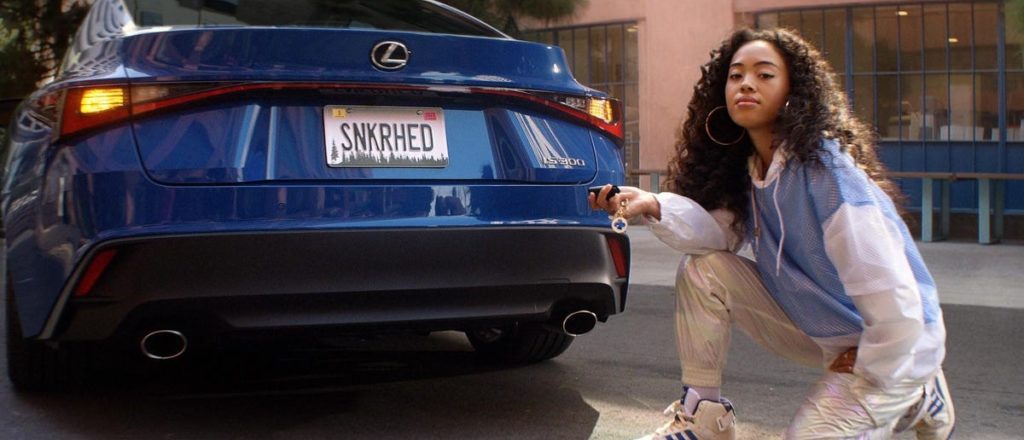Millenials have gained more purchasing power, and brands are starting to stand-up marketing campaigns and partnerships to try and capture this audience. Many brands, like Lexus and Tiffany and Co., have been pretty obvious in their advertisements lately. These brands, among others, are household names for baby-boomers and gen-X – but not the most popular among the Millennials or Gen Z.
However, when trying to expand your target customer, it’s important to remember there is a thin line between authenticity and click-bait. Here’s how Lexus and Tiffany have approached it.

Lexus has been working on their customer expansion for years now, and you may have seen their new IS Campaign which is specifically targeting millennials with personas in the ad that speak directly to sneakerheads, art buffs, gamers and fashionistas alike. Clearly speaking to a younger crowd. “We saw a parallel between our obsession for creating an authentic sports sedan and our customers’ obsessions with their interests, such as sneakers, gaming and music,” said Lisa Materazzo, vice president of marketing at Lexus, Plano, TX when speaking to LuxuryDaily, “For this campaign, we wanted to celebrate those who fully embrace their passions, the same way we fully embrace ours.” For Lexus, “all in” means an expansion of their target customer – hopefully without alienating their existing demographic (the 2021 Lexus line still includes “old luxury” nods like an analog clock, and an in-dash CD player is still standard alongside Android Auto and Apple CarPlay).
Tiffany & Co. has also been working on speaking to a younger demographic for years. Partnering with celebrities from A$AP Ferg to Beyonce and Jay-Z, Tiffany & Co. is leaning on these household names to carry their brand message to younger generations (who are fans of these artists but may not be previous Tiffany customers). A$AP Ferg told Vogue UK that he used to walk past the Tiffany store on Fifth Avenue in New York, looking in the window but never had the guts to go in. Two decades later and he is a brand ambassador for their “Believe in Dreams” campaign. “I feel like I’m breaking down barriers and bridging the gap between my culture and the brand’s culture,” says A$AP Ferg. Tiffany & Co. also tapped power couple Beyonce and Jay-Z, while tieing in their love for the artist Jean-Michel Basquiat. According to WWD, “Tiffany is putting major firepower behind the yearlong campaign featuring the Carters, which includes a short film that depicts Beyoncé singing “Moon River” to her husband. It’s destined for major exposure in the coming months, including a takeover of all the digital billboards in New York’s Times Square.” Tiffany & Co. isn’t hiding behind this re-positioning. Take a look at a recent post on their facebook page:
For the 180 year old company, this is an uphill battle. Take a look at the Google search trends for their brand name, below. There has been a steady decline since the inception of this tracking in 2004.

Their latest collaboration with Daniel Arsham is another nod to a younger demographic. Arsham, popular with young sneakerheads and art buffs alike, was tapped to produce a massive installation in their fifth avenue flagship store, as well as create a limited edition eroded Tiffany box with matching bracelet.
Omni-channel is super important when it comes to appealing to a younger demographic, as their purchasing behaviour is a lot less siloed. Millennials and Gen-Z are comfortable making purchases on websites, Instagram pages, Facebook showrooms as well as in-store. Tiffany & Co. is adopting an omni-channel approach quickly, since they were bought by LVMH. This includes significant investment in online assets as well as making in-store experience tied into the digital world with “instagrammable” installations (like Arsham’s Eroded Tiffany Box).
Have Lexus’ or Tiffany’s campaigns made you think differently about their brands? We’d like to hear what you think, or, if you’d like to learn more about persona-marketing and omni-channel retail experiences, contact us today to chat.